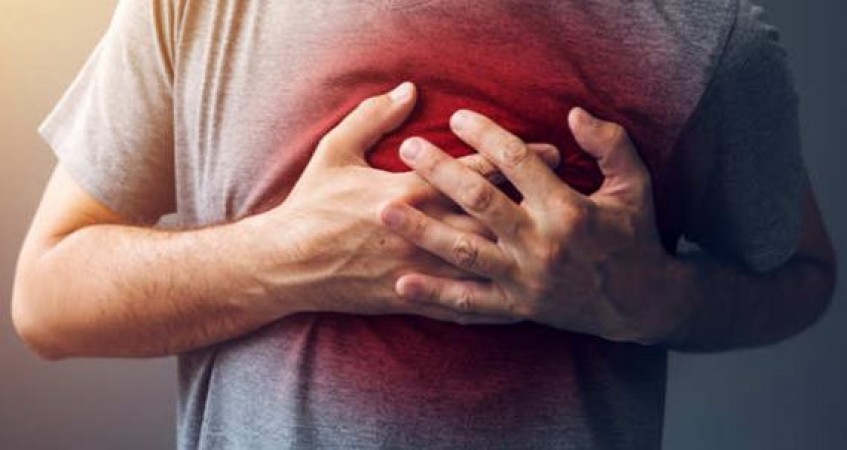
World Heart Day is observed annually on September 29th to raise awareness about heart diseases and promote heart health worldwide. The primary objective of World Heart Day is to educate people about the risks of heart diseases and how to prevent them. Each year, millions of individuals succumb to heart-related illnesses, making it crucial to empower people with knowledge and responsibility for their heart health. Initiated by the World Heart Federation, World Heart Day serves as a reminder of the increasing prevalence of heart attacks, even among younger individuals. This article discusses the common symptoms of a heart attack and the two essential tests that can help diagnose it promptly.
The Silent Threat: Heart Attack Symptoms
Often, the human body provides warning signs before a full-blown heart attack occurs. Unfortunately, many individuals tend to overlook these symptoms. It is essential to recognize these signs to seek prompt medical attention when they appear, as early intervention can be life-saving.
Chest Pain or Discomfort:
One of the most common symptoms of a heart attack is chest pain or discomfort. This sensation may feel like pressure, heaviness, tightness, or pain in the chest area. Sometimes, individuals mistake it for indigestion or heartburn, but it can be a sign of a heart attack.
Headache:
A sudden, severe headache or a persistent, throbbing head pain can also be indicative of a heart attack. This headache may be accompanied by dizziness or a feeling of lightheadedness.
Sweating Profusely:
Experiencing excessive sweating, particularly on the forehead or face, can be a sign of a heart attack. Cold, clammy sweat is often associated with this symptom.
Shoulder and Neck Pain:
Pain or discomfort in the shoulders, neck, or upper back can be an early warning sign of a heart attack. These areas may ache or feel tense.
Jaw Pain:
Unexplained pain in the jaw, especially on the left side, should not be ignored. It can be related to heart problems and should prompt medical attention.
Nausea and Vomiting:
Sudden nausea, accompanied by vomiting, can occur as a heart attack symptom. Individuals may feel queasy or have an urge to vomit.
Cold Sensation:
A sudden drop in body temperature, accompanied by shivering or a feeling of extreme coldness, can be another sign of a heart attack.
Shortness of Breath:
Difficulty in breathing or a feeling of breathlessness, even when at rest, can be a critical symptom of a heart attack. It may be accompanied by chest discomfort.
Fatigue and Weakness:
Feeling unusually tired or weak without apparent reason can be a sign of an impending heart attack. The fatigue may be overwhelming and not relieved by rest.
Rapid Heartbeat:
A noticeably fast or irregular heartbeat, often referred to as palpitations, can be an early indication of a heart attack.
Responding to Symptoms
If you or someone around you experiences these symptoms, it is crucial to take immediate action:
Call for Medical Help:
Dial emergency services or seek medical assistance without delay. Quick response time is critical in treating a heart attack effectively.
Chew Aspirin:
If you have aspirin on hand and are not allergic to it, chew one aspirin tablet while waiting for medical help. Aspirin can help reduce blood clotting, which is often involved in heart attacks.
Stay Calm:
Remaining calm and avoiding physical exertion can help minimize the strain on the heart. Sit down, if possible, and wait for professional medical assistance.
Diagnostic Tests for Heart Attack
Two essential diagnostic tests can help confirm the presence of a heart attack and guide appropriate treatment:
Troponin Test:
The troponin test is a blood test that measures the levels of troponin, a protein released into the bloodstream when the heart muscle is damaged. Elevated troponin levels indicate heart muscle injury, which is a strong indicator of a heart attack. This test is highly sensitive and specific, allowing healthcare providers to assess the extent of damage and plan appropriate interventions, such as angiography and angioplasty.
ECG (Electrocardiogram) Test:
An electrocardiogram, also known as an ECG or EKG, records the electrical activity of the heart. It helps identify abnormal heart rhythms and patterns that may result from a heart attack. The ECG can also reveal changes in the heart's electrical impulses caused by reduced blood flow to the heart muscle. By analyzing these patterns, healthcare professionals can diagnose a heart attack and determine its location and severity.
World Heart Day serves as a reminder that heart health is a global concern, and it is essential to recognize the warning signs of a heart attack and take them seriously. Chest pain, headache, sweating, shoulder and neck pain, and other symptoms can be early indicators of a heart attack. Swift action, including calling for medical help and undergoing diagnostic tests like the troponin test and ECG, can make a significant difference in the outcome of a heart attack. By raising awareness about heart attack symptoms and promoting early intervention, we can work together to reduce the mortality rate associated with heart diseases and ensure a healthier future for all.
Know Impact of Breast Cancer Awareness Month: Advances in Research, Support and More
How to Prevent Heart Attacks: A Guide to a Healthier Heart
World Heart Day 2023: Use Heart, Know Heart: Know Some Signs Of A Healthy Heart